During the Corona closure of our Munich Institute, the MGH invite you to join us on a trip through 200 years of medieval research history: The series “Treasures of the MGH Library and Archive” presents a treasure trove of rare and fascinating items illustrating key moments of our history. Enjoy discovering!
Among the collection of documents in the MGH archive related to the planning of the 19th Deutscher Historikertag (German Historians Convention) in Erfurt in June 1937, a newspaper article illustrates how historians were placed under political pressure by the Nazi regime. Written in inflammatory language, the article penned by the Nationalsozialistischer Deutscher Studentenbund (National Socialist German Student Association) proclaims an ideological vision of the future role of historical studies and heavily criticises the programme of the Historikertag (for the programme, see the images below). „A tremendous battle of the spirits is raging in our days,“ writes the anonymous author. „Our aim is the total inclusion and education of every German person.“ To reach this goal, historical studies and research had to play their part. „The times demand that the National Socialist historian must serve the truth and the „völkisch“ purpose. We are happy to note (...) that the problems of Jewry and the ethnical-political boarder conflict are being treated [in the Historikertag]. But we are disappointed, badly disappointed, that there is no topic dealing with the catholic-priestly problems of the German past.“ The article formulates the expectation that historians should „expose those forces at work that have been so thoroughly destructive in the formation process of the German Volk.“
Besides the Verband Deutscher Historiker (German historians association) and the Gesamtverein der deutschen Geschichts- und Altertums-Vereine (the union of German associations for the study of history and antiquities), the Historikertag was being organised by the two newly created National Socialist historical institutes, the „Reichsinstitut für Geschichte des neuen Deutschlands“ and the „Reichsinstitut für ältere deutsche Geschichtskunde“, as the MGH was now known (for more on the transformation of the Monumenta into a Nazi „Reichsinstitut“, see nos 13 and 14 in this series). Also in the Verband Deutscher Historiker, the National Socialists had taken power with the Nazi historian Walter Platzhoff being appointed as chairman of the association in March 1937. In his first circular letter to the members, he wrote of the plans for the coming Historikertag: „Since this will be the association’s first assembly since its reorganisation, it should have a representative character. The „Reichsinstitut für Geschichte des neuen Deutschlands“ and the „Reichsinstitut für ältere deutsche Geschichtskunde“ (Monumenta Germaniae historica) will also be involved in holding the convention in Erfurt.“ (MGH archive B 545,2, Bl. 162).
On April 27 1937, one day after the inflammatory article had appeared, the commissary president of the MGH, Wilhelm Engel, found it necessary to discuss things with the executive director of the „Reichsinstitut für Geschichte des neuen Deutschlands“, the historian Gerhard Schröder. Schröder war himself a staunch National Socialist and a close confidant of the Nazi ideologist Walter Frank. The attack by the National Socialist student association obviously demanded an answer, even if the organisers of the Historikertag felt that they had a „clean conscience“, as Walter Platzhoff wrote in a letter to Engel on May 4 1937. „I first read the article in „Die Bewegung“ [a National Socialist propaganda organ] in a copy published in the Frankfurter Zeitung. I don’t feel in the least perturbed, because we have a clear conscience.“ (B 545,2, Bl. 150).
This was not enough for Engel, who went to the additional extent of writing a clarification of his position to Gerhard Schröder – and thus also to Walter Frank: „I wish to make the following remarks in addition to that what I have already said today regarding the article published in „Die Bewegung“. I consider the pointed emphasis of setting anti-Catholic topics on the agenda to be undesirable and tactically stupid. The Historikertag is unquestionably a matter of international importance and should serve politically to solicit sympathies for the Reich without the topics for discussion giving the event a political tendency from the start. The political content of the speech seems to me more important than the political formulation of the theme. (...) In short, if the author of the article had really thought about the themes in a scholarly and responsible way, he would have understood or rather, he would have had to understand the content and the intent of the speeches. The article appears not to arise from careful consideration of the Erfurt themes, but is rather an intentional attack against the positions that we have jointly agreed to, which intend to combine political vision with scholarly work. Please inform Walter Frank of my opinion and greet him for me.“ (B 545,2, Bl. 148).
One month before this discussion, Pope Pius XI had published his encyclical „Mit brennender Sorge“ (with burning concern), written in German and openly condemning the Nazi regime. The German bishops were obliged to exercise great secrecy in disseminating the encyclical, but managed to send copies of it to the clergy in most German bishoprics; in the bishoprics of Munich, Münster and Speyer it was even printed in great numbers. On Palm Sunday, March 21 1937, it was read aloud in all catholic parishes across the land. Repressive reactions followed swiftly with confiscations, prohibitions, and arrests.
The agitation against catholic priests and in particular against the Jesuits in the newspaper article cited above was the prelude to the brutal persecution that followed. A few years later, members of religious orders and priests were among those imprisoned, tortured and killed in Nazi concentration camps.
A. Marquard-Mois
Learn more about this treasure of the MGH archive in: Benedikt Marxreiter: „Zeitgemäß ist, was dem völkischen Kampfziel dient“. Der NSD-Studentenbund und das Programm des 19. Deutschen Historikertags. In: Mittelalter lesbar machen. Festschrift 200 Jahre Monumenta Germaniae Historica, 2019, S. 216-218.







